 |
|||||||||||||||||||||||||||||||||||||||||||||||||||||||||||||||||||||
| Past Issues | Subscribe | Send to a Friend | compostingcouncil.org | |||||||||||||||||||||||||||||||||||||||||||||||||||||||||||||||||||||
|
Tell us what’s going to happen at A1 Organics on April 1 that was just announced. Starting on April 1, A1 will only allow food scraps, yard/plant trimmings, and use of a three-gallon or smaller Compost Manufacturing Alliance-approved compostable bag in the residential and commercial source-separated organics (SSO) streams. Contamination is the number one challenge our industry faces, as we continue to work on solutions as a community. Simplifying what we accept supports our goal to keep food scraps and yard and plant trimmings out of the landfill. It is more important than ever to reduce harmful methane emissions while creating a marketable compost. It is anything but a sudden move. It can go back to the USCC conference five years ago when I was asked to present on "contamination, solvable or not” related to the contamination challenge in SSO composting. The answer was yes, it was solvable, but it would require a paradigm shift. That has not happened; the industry (A1 included) has basically kept doing the same thing and expecting different results and the problem has grown. A1 has been working with all our stakeholders on defining the paradigm shift we are implementing. Composting of SSO is NOT a single stream recycling process. SSO needs to be reworded. It should be OSS: Organics Separated at the SOURCE. That is the shift; we are resetting our site by committing to addressing that shift so that compostable products, current and future, can be separated at the source, treated properly and not landfilled as they are now. It is not a one and done. Our plans are to reset our site physically and move the volume of compost with small debris in it. But more importantly we must change the paradigm narrative so that we can manage compostables separately, effectively, and create a closed loop system that supports and benefits all stakeholders. Why is this important for the industry in Colorado, and perhaps beyond, right now? Colorado has ramped up the narrative on organics diversion based on development of a Statewide Organics Management Plan. More infrastructure is needed. Curbside programs expanding and new ones are coming on. The contamination problem is increasing along with confusion in the market. This shift to address the intent of the SSO narrative to what it should be—OSS with emphasis on source separation—is needed here and frankly throughout the industry. There is a difference between "can’t and won’t.” Colorado has an incredible community and this can be done.
Join us for an insightful webinar, "The Right Location for Your Operation: Zoning and Site Planning for Composting Facilities." Our distinguished speakers, including Chris Seney from Republic Services, Linda Norris Waldt from the US Composting Council, and Angel Arroyo Rodriguez from Ohio EPA will provide you with valuable insights into the legal and regulatory landscape of zoning for composting operations. Learn how zoning regulations across the country impact new compost facilities, site selection, and operational standards.
In this webinar, you will learn:
♦ The importance of zoning and site planning for compost facilities
♦ Key considerations for selecting the right location for your operation ♦ Best practices for complying with local regulations and permitting processes Don't miss out on this opportunity to gain valuable knowledge and insights from our panel of experts!
Register now to secure your spot.
Date: Monday, March 27
Time: 2:00 p.m. ET Duration: One hour Registration Link: https://www.compostingcouncil.org/events/register.aspx?id=1731370 Sponsor: Elevate Packaging
On Jan. 1, 2022, the state of California required the majority of homes and businesses to recycle all food and yard waste. Republic Services, is always prepared to help communities adjust to this change through their growing organics recycling program. Otay Compost Facility in Chula Vista, California was added to the multiple composting facilities that Republic Services has. Opened in August 2021, Otay Compost Facility is first of its kind with state of the art infrastructure powered entirely by solar, and it utilizes industry-leading compost cover technology. The new facility can compost 200 tons of organic waste a day from the city of Chula Vista, the city of Carlsbad and customers in San Diego County. Celebrating its innovative approach to organics diversion, the National Waste & Recycling Association recently named Republic Services' Otay Compost Facility the "2022 Organics Management Facility of the Year.” The same year, California Resource Recovery Association (CRRA) named Otay Compost Facility the recipient of Dave Hardy Leadership in Organics Award for demonstrating excellence in the production, marketing and/or utilization of organic materials.
In California, jurisdictions are now required to procure compost, and Republic Services wanted to assist its customers in any way possible. Republic Services takes pride in getting their product certified through the STA program because the program provides their customers with clarity, consistency, and confidence in the products, as well as to help maintain the highest standards at all of their facilities.
As announced at COMPOST2023, Cary Oshins will be retiring from his long career at the US Composting Council and the Compost Research and Education Foundation. Cary has requested that the following two poems be shared with the membership in his final month of work at the USCC. Click the button below to read both poems.
USCC’s first Compost Operations Happy Hour of the year centered on PFAS (perfluoroakyl substances) and compost, and it raised $1,576 to match an anonymous donor’s contribution to support legislative work on the issue.
These Happy Hours are informal roundtables on compost subjects that often attract a small group that can chat freely in the virtual "meeting” format. But as soon as word got out that the speakers—Noel Lyons (McGill Compost), Andrew Carpenter (Northern Tilth) and Neil Edgar (California Compost Coalition)—would be taking about PFAS, registration shot up quickly to more than 100 people! These three individuals are on our PFAS Task Force guiding USCC action, lobbying and response to this issue. A recording of this Happy Hour meeting can be found below.
A number of state legislatures are considering bills with some form of Extended Producer Responsibility (EPR) for packaging of recycled and compostable products, following passage of bills in Maine, Oregon, California and Colorado since 2021.
Extended Producer Responsibility for packaging requires contribution by packaging producers towards funding of municipal recycling programs, or in some cases, allowing "takeback" programs for product manufacturers/distributors. The US Composting Council, with allies, has been working to ensure that funds not only go to conventional recycling (paper, aluminum, glass, plastic and steel) but to composting and organics recycling as well. See legislative guidelines developed in 2022 here.
This premier resource connects career opportunities with highly qualified compost industry talent and is designed to provide employers and job seekers with a better overall job posting experience. Users will be able to access the Career Center through any device: smartphone, tablet, or desktop. Formerly known as the USCC Job Board, the USCC Career Center will make a significant difference for our members and associated composting industry professionals navigating career paths. The USCC Career Center will allow you to manage your career or recruit for open positions in several ways. Click the button below to learn more.
I decided to get my CCOM certification to continue growing in the field of composting and to stay abreast with the ever-evolving composting world. I pursued this certification so I could be recognized in the composting industry as someone with expertise in composting. I want others outside of the composting industry to recognize that composting is a crucial and rapidly growing field. Additionally, I want to spread awareness that composting is something you can be professionally certified in! Are you interested in staying up-to-date with the latest advancements in composting while also gaining visibility for your company? Look no further than the US Composting Council's 2023 webinar series and their sponsor packages!
The webinar series features a variety of informative sessions led by leading experts in the composting industry. From the latest technologies to the best practices for managing compost facilities, there is something for everyone. But that's not all! By purchasing a sponsor package, your company can gain visibility and recognition as a supporter of these informative sessions. Sponsor packages include a variety of benefits such as logo placement on marketing materials, recognition during the webinars, and access to attendee lists. It's a fantastic way to promote your company while also staying informed and engaged in the world of composting.
Don't miss this opportunity to both learn and promote your company. Register for the US Composting Council's 2023 webinar series and explore our sponsor packages today!
Attention all composting enthusiasts! The USCC is excited to announce that applications for the 2023 Environmental Apprenticeship program’s spring internships will be launching soon. This is a fantastic opportunity for interns interested in policy, data management, and marketing to gain hands-on experience and establish long-lasting professional connections within the industry.
The Target Organics Committee, which oversees the resources and marketing of the Target Organics Hub, a website full of compost program planning resources, is looking for more members from city and county governments to help out. The committee meets for one hour each month and there are occasional opportunities for subcommittees, copywriting, marketing planning and strategic planning involved. If this sounds like you, reach out to Chair Dan Aronson, dan@elevatepackaging.com or staff member Linda Norris-Waldt, lnorriswaldt@compostingcouncil.org.
The Membership Committee is tasked with facilitating effective member communications and outreach to existing and prospective members in the industry. It is our goal to best align member benefits with industry needs to maximize the value of a membership to the compost industry. Through our efforts, we aim to connect with the wider composting community and engage them in the benefits of membership, highlighting its potential for creating healthy soils, reducing waste, and mitigating climate change.
We are committed to building strong relationships with our members, fostering a sense of belonging and engagement within our community, and promoting the importance of composting as a sustainable practice. If you would like to learn more about the membership committee please reach out to Committee Chair Ryan Cooper at ryan.cooper@rubicon.com or Staff Liaison Eric Hudiburg at ehudiburg@compostingcouncil.org
If you are interested in joining any committee please visit https://www.compostingcouncil.org/page/Committees
As a board member of the Minnesota Compost Council, Dustin Montey has an undying passion for clean dirt. He currently runs the world's largest tribally-owned composting facility, processing around 80,000 tons and in the process of expanding to 172,500-180,000. The expansion should be complete this fall. Dustin stays in tune with the latest developments in the organics industry and notably keeps an open mind toward changing the business model if necessary. He truly leads by example in all he does.
Rotochopper owners and operators gathered at Rotochopper’s manufacturing facility in St. Martin, MN for training on the second and third week of February. The customer service department hosts Rotochopper University annually for companies that have purchased a Rotochopper horizontal grinder, shredder, or screening equipment during the past year.
The two-day class includes a manufacturing facility tour, equipment operation best practice training, hands-on demonstrations and plenty of networking opportunities allowing machine owners to learn from each other as well. This year the education focused on ‘how to properly feed your machine’, ‘how to perform preventative maintenance’ and ‘how to troubleshoot’. The hands-on demonstrations showed attendees how to install the main rotor bearings and how to adjust the sheave and tension the drive belt on a Rotochopper grinder. “After attending Rotochopper University I feel very confident in my knowledge of operating and maintaining our equipment,” shared one event attendee. Another attendee commented, “They go over a wide scope of topics, but also personalize the information they’re going over for the class attendees and the equipment we operate.”
The Climate Pollution Reduction Grants is one of the EPA’s big new Inflation Reduction Act funding opportunities of almost $5B. The grants include non-competitive “planning grants” for staffing up and initial planning, and then provide large competitive funds to implement those plans with eligible local governments. However, the work must relate to the initial planning grant to develop or expand the plans.
Kelsea Jacobsen joins the CREF team as a program manager. She is from Oceanside, CA, and for the last five years she has led composting education in the San Diego region through her work with the Solana Center for Environmental Innovation. In that role, she was involved with teaching and administering Master Composter courses, mid-scale composting courses, and a wide array of other composting and environmental outreach. As CREF's new program manager, Kelsea will oversee activities that support the Compost Operations Training Courses (COTC) and provide broad-spectrum administrative assistance to the organization as it continues to expand. Jamie Blanchard-Poling is joining the staff in a new role as an assistant project manager for the Compostable Field Testing Program (CFTP). Jamie started in the composting industry in 2018, founding her own company, Compost Queen PBC. The Colorado-based company, Compost Queen, is both a hauler and a composter, incorporating into their compost all the food scraps they collect locally. In the past few years, Jamie has won the USCC Emerging Composter Challenge in January 2022, and the Small Composter Manufacturer of the Year in January 2023. If you have questions about the COTC program, Kelsea can be reached at kelseajacobsen@compostfoundation.org or for questions about the CFTP, contact Jamie at jamiepoling@compostfoundation.org.
By: BioCycle Connect
A BioCycle article on Feb. 8, 2023 reported on recommendations made by the Vermont Depackager Stakeholder Group to the Vermont legislature in January 2023. Among the recommendations was for the Vermont Agency Of Natural Resources’ (ANR) Department of Environmental Conservation (DEC) to revise its 2019 policy for managing food residuals and packaged food and prepare a draft by February 15, 2023. The DEC released the draft on Feb. 15 — “Draft Policy for Source Separation of Food Residuals and Heavily Packaged Food Residuals” — incorporating the stakeholders’ recommendations. “ANR doesn’t have a formal public comment period on policies issued by the Department,” explains Ben Gauthier, Environmental Analyst with ANR. “However, given the interest in this particular topic, we opted to voluntarily invite feedback so interested participants can help us improve the final policy. We are accepting comments through March 16, 2023.”
|
|||||||||||||||||||||||||||||||||||||||||||||||||||||||||||||||||||||
 During a recent Q&A session with Clinton Sander, Marketing Manager at A1 Organics in Colorado, he explained that their recent decision to limit the acceptance of inbound materials is aimed at reducing contamination. A1 Organics' full press release can be found
During a recent Q&A session with Clinton Sander, Marketing Manager at A1 Organics in Colorado, he explained that their recent decision to limit the acceptance of inbound materials is aimed at reducing contamination. A1 Organics' full press release can be found 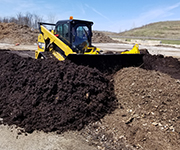
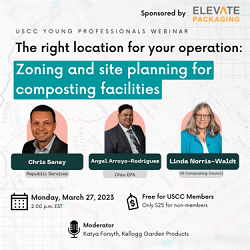

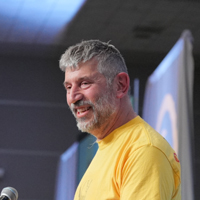
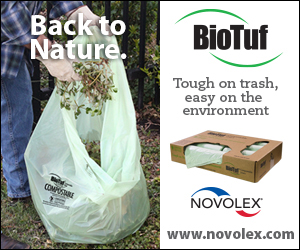
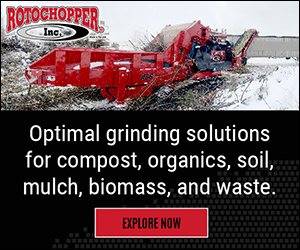
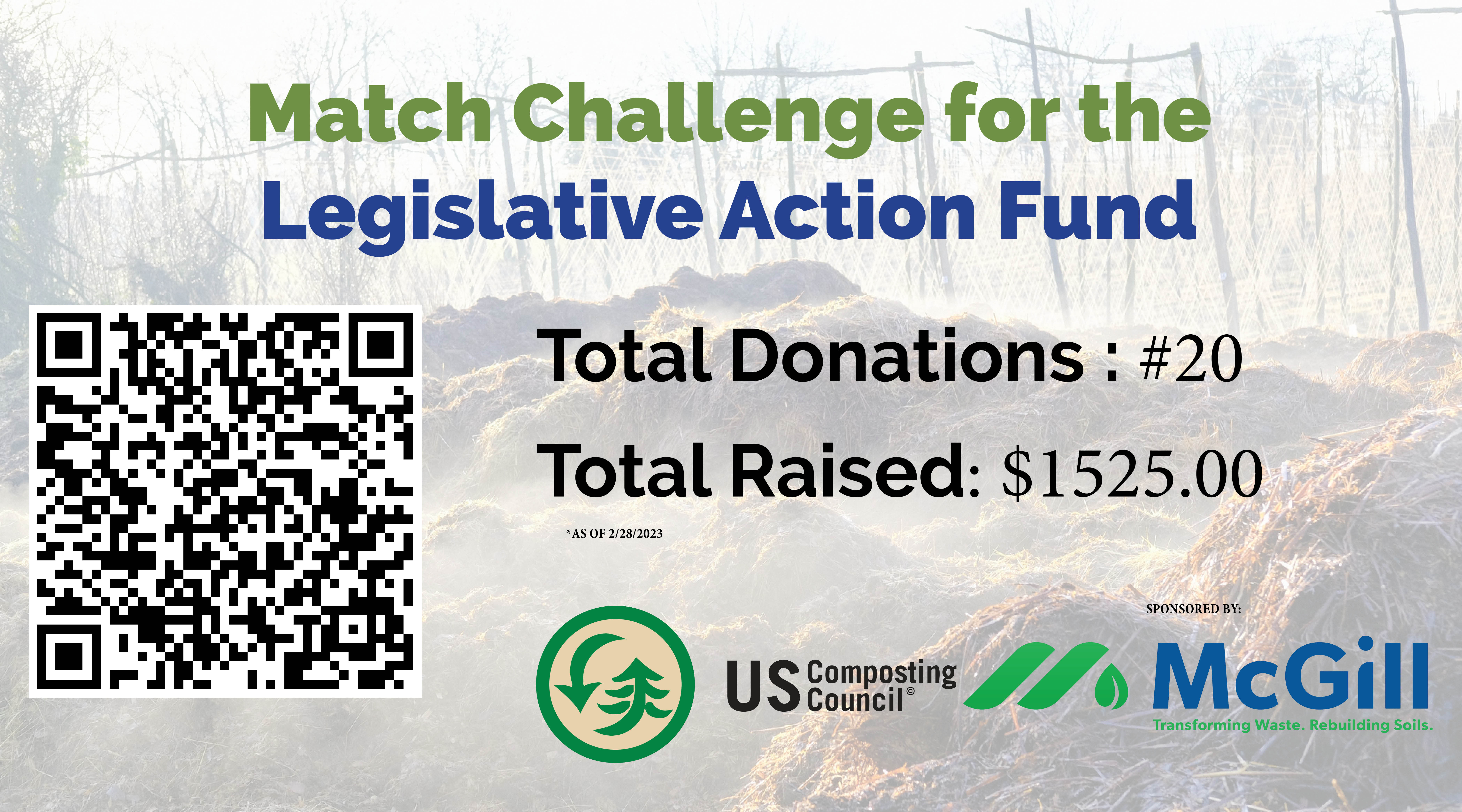
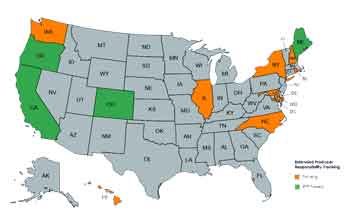
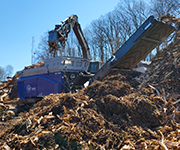
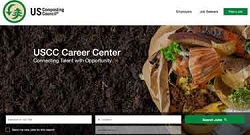
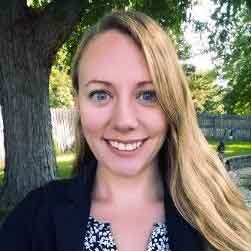 Erin Skelly is the Environmental and Compliance Technician at the SMSC Organics Recycling Facility, a large-scale composting facility in Shakopee, MN. Erin has been working in the composting industry for the past six years and holds a B.S. Degree in Environmental Science. In her position, she monitors all aspects of the composting process, works with haulers to reduce contamination, creates compost recipes, conducts educational tours, and ensures outgoing product meets quality standards.
Erin Skelly is the Environmental and Compliance Technician at the SMSC Organics Recycling Facility, a large-scale composting facility in Shakopee, MN. Erin has been working in the composting industry for the past six years and holds a B.S. Degree in Environmental Science. In her position, she monitors all aspects of the composting process, works with haulers to reduce contamination, creates compost recipes, conducts educational tours, and ensures outgoing product meets quality standards.
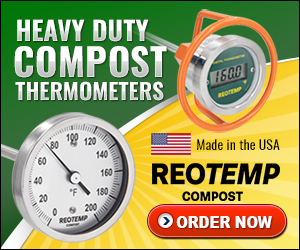
 The USCC Young Professionals Group invites you to attend our upcoming monthly happy hour, where you will get the chance to meet some of the past winners of the Emerging Composter Competition, our an annual business pitch/poster challenge showcasing new businesses and research within the composting, compostable products, and organics recycling space.
The USCC Young Professionals Group invites you to attend our upcoming monthly happy hour, where you will get the chance to meet some of the past winners of the Emerging Composter Competition, our an annual business pitch/poster challenge showcasing new businesses and research within the composting, compostable products, and organics recycling space.

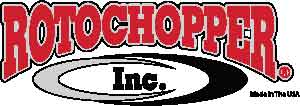
 CREF is happy to announce that it has hired two new people to join its staff. Both are highly qualified and experienced, bringing to the Foundation the ability to jump right in and start making an impact immediately.
CREF is happy to announce that it has hired two new people to join its staff. Both are highly qualified and experienced, bringing to the Foundation the ability to jump right in and start making an impact immediately. 
